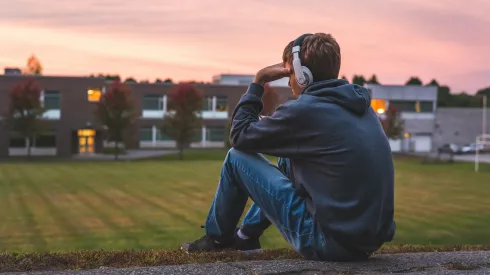
Poland’s population falls by 157,000 in 2025 as births lag deaths
Poland’s population fell by 157,000 in 2025, bringing the total to 37,332,000 at year’s end, according to the government’s Central Statistical Office. The decline represents a drop of 0.42%, or about 42 people per 10,000 inhabitants, compared with 39 per 10,000 the previous year.
-

Not everyone wants to be ‘happy’, study finds
Maximizing happiness is not a universal human goal and is far more characteristic of wealthy, educated, and democratic societies, according to a new cross-cultural study led by Professor Kuba Kryś of the Institute of Psychology of the Polish Academy of Sciences.
-

Training children’s sense of smell improves their everyday life, study shows
The sense of smell plays a crucial role in children’s daily functioning, from regulating emotions to enhancing taste, social interactions, and safety, according to Marta Rokosz, PhD, a researcher at the University of Wrocław’s Institute of Psychology.
-

Gen Z faces crisis of trust as linguistic manipulation blurs truth and falsehood, researcher says
We are observing a crisis of trust among Generation Z, making it difficult for young people to distinguish between true and false news, says Artur Urbaniak, PhD, of Adam Mickiewicz University in Poznań. However, the more knowledge people have, the harder they are to manipulate, he adds.
-

Popularity of pagan practices in Poland is growing
The number of people in Poland who consciously choose pagan religions is growing, driven in part by an interest in Slavic heritage and a search for alternative forms of spirituality, says research from the Jagiellonian University.
-

Study explains why people secretly enjoy the misfortune of others
People often experience satisfaction when others fail or suffer, particularly when the misfortune affects someone who has previously provoked them, according to research published in the journal Cognition and Emotion.
-

Using spoken and sign languages boosts focus, planning, and attention, study finds
People who use both spoken and sign languages may achieve better results in tasks requiring executive control and visuospatial attention than monolinguals and bilingual users of spoken languages, according to research conducted at the Jagiellonian University.
-

Festive lights boost social life but risk worsening light pollution, expert warns
Festive lights are a permanent feature of Polish cities and can play a positive social role, but they also contribute to light pollution, with their environmental impact depending largely on where and how they are installed, an expert from the Wrocław University of Environmental and Life Sciences has warned.
-

Poles show growing interest in eco-homes, but cost and stereotypes remain barriers, expert says
While skyscrapers made of wood are being built worldwide, Poland still struggles with stereotypes about sustainable construction. Many people want eco-friendly solutions, but more familiar and cheaper options often win, according to Bartosz Dendura, PhD, from the Cracow University of Technology.
-

Feeling lonely alters how we view people and situations, says Polish psychologist
When loneliness sets in, it subtly reshapes how we see the world. People around us begin to appear colder and more hostile, even though we crave connection.













